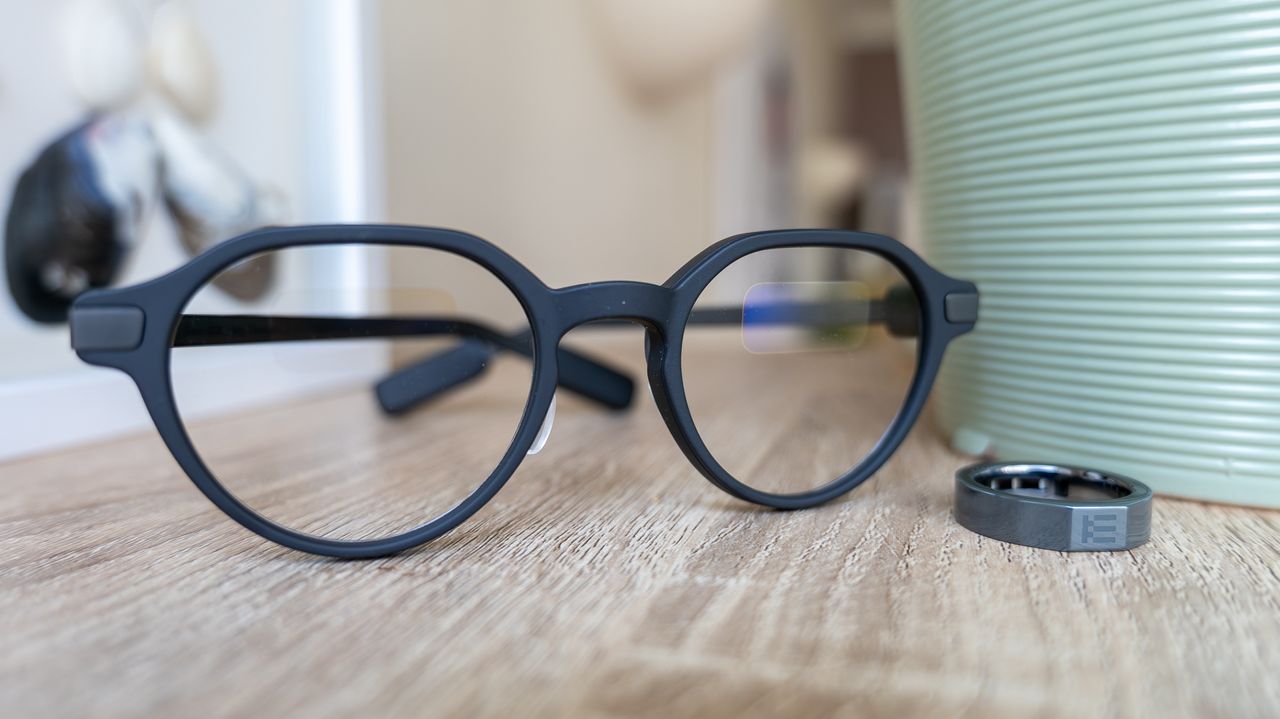
(Image credit: Rik Henderson / Future)
You might not have heard of the brand before, but Even Realities has been making smart glasses with displays long before Ray-Ban and Meta.
It launched the Even G1 glasses in the summer of 2024, and while they haven't quite made as big a splash as the Ray-Ban pair, there's something refreshing about a smaller, neater brand offering a serious contender.
And now we have the second generation pair – the Even G2 Display Smart Glasses – and things have really gone up a notch. Not only are they a touch lighter and more comfortable, you can pair them with another new product – the Even R1 Smart Ring – for gesture controls.
I got to test both for a few days prior to the official launch to find out how they work, and how they compare to Meta Ray-Ban's solution (having also tested those). This isn't a full review by any stretch, as I opted to wait for a prescriptive pair and the final build of the updated iPhone and Android app, but these are my initial impressions.
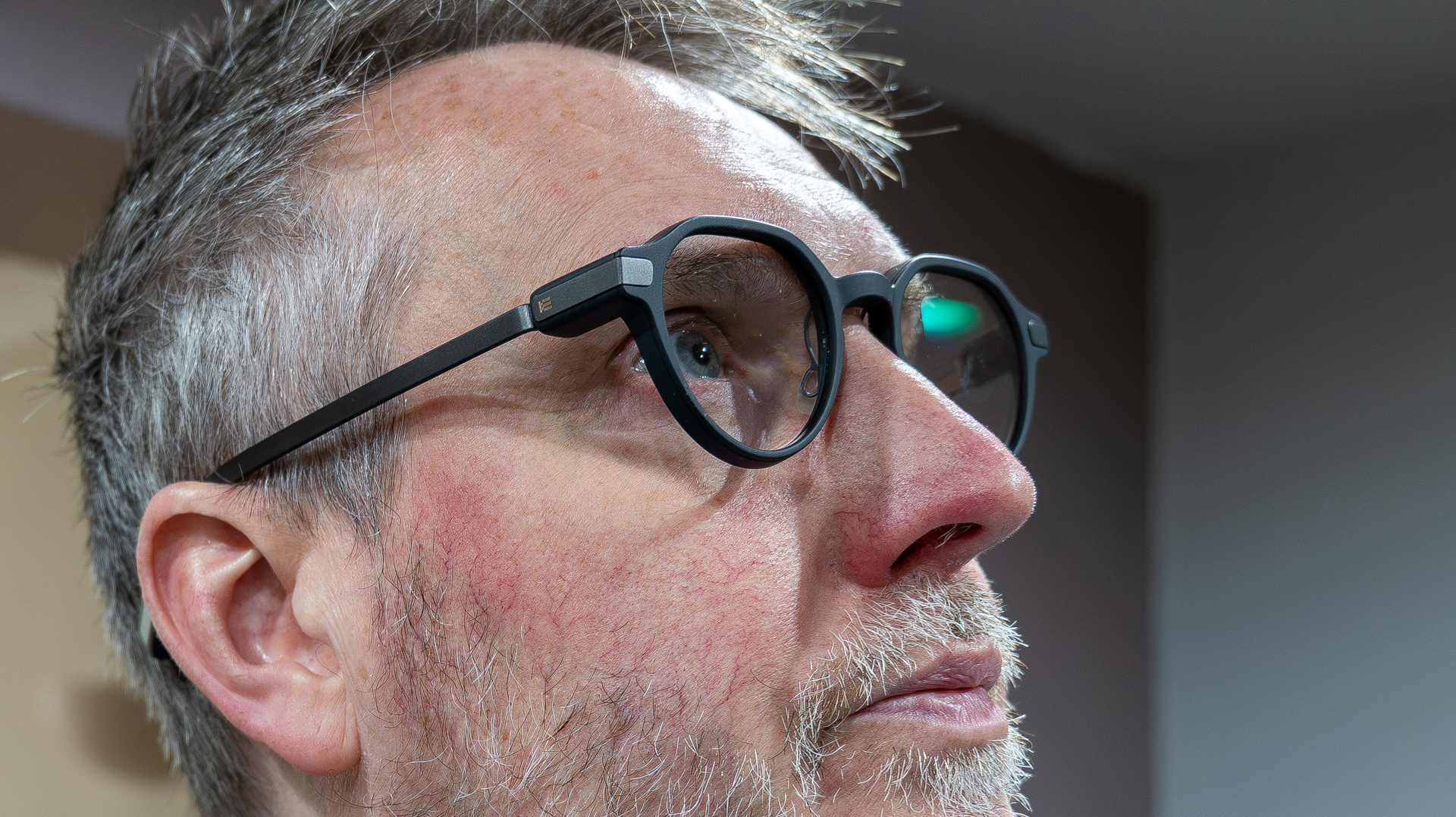
(Image credit: Rik Henderson / Future)
The lightest smart glasses around?
The first thing I noticed is just how light the Even G2 glasses are. Just 36g, they are as light and comfortable as my own everyday reading glasses – a little bulkier at the rear for the battery, but very well balanced.
This is vital as Even Realities is coming at the market from a different angle to Meta, Ray-Ban and Google. It can be said that these are glasses first and smart second – they are designed to be worn every day, and predominantly by those needing glasses.
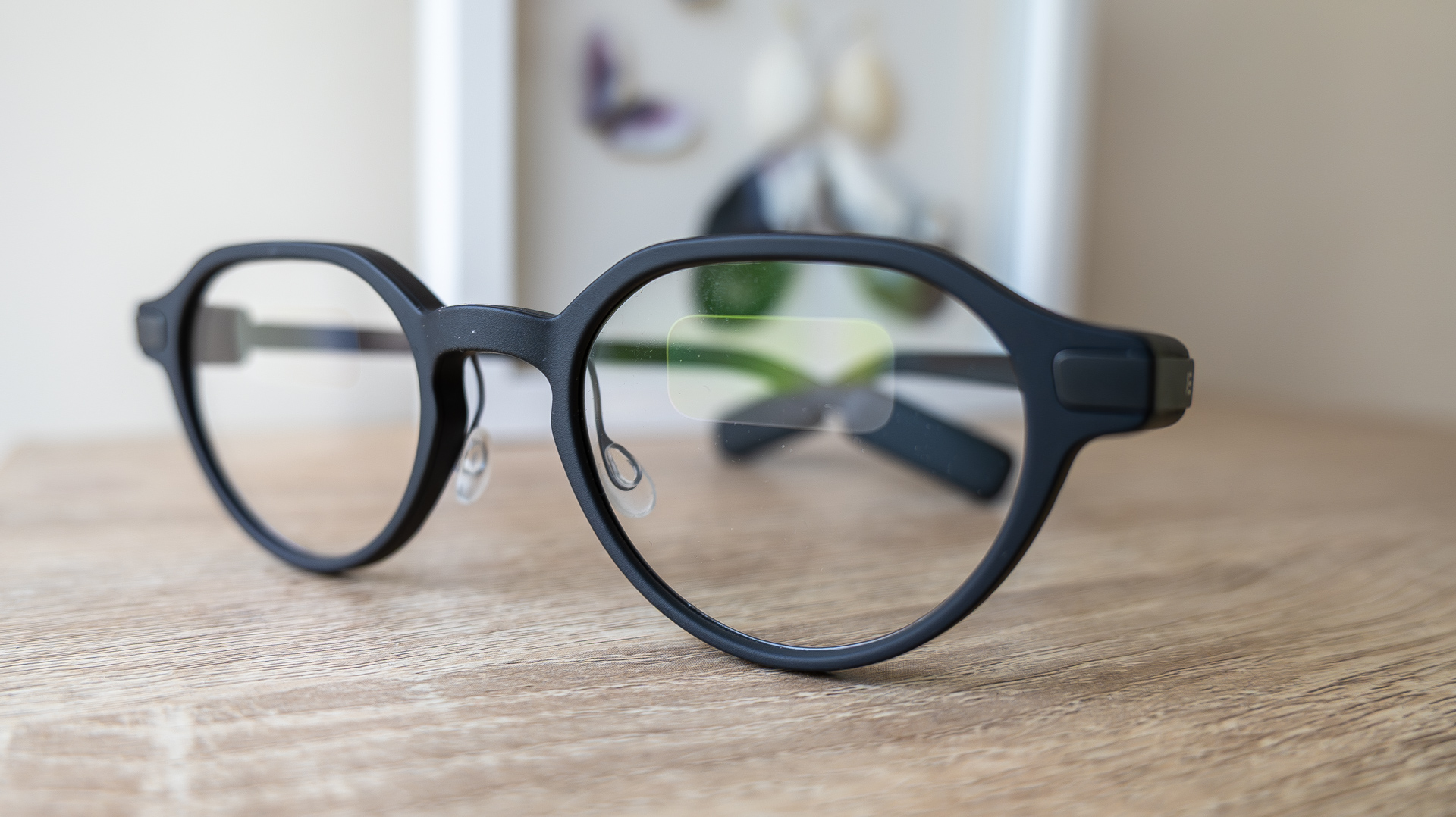
(Image credit: Rik Henderson / Future)
For that reason, Even is investing heavily in its own lenses factory and promises a prescriptive range of -12 to +12 diopters. That's the widest optical range of any smart glasses manufacturer. The prescription lens fits behind the smart layer, and so is barely even noticeable. And with a display in each lens (rather than the one in the Meta Ray-Ban Display glasses), you also get a clear AR image when called upon – with 3D effects in some instances.
I tested the "panto" model, but there is also a rectangular version. And mine were grey, although you can get them in brown and green too.
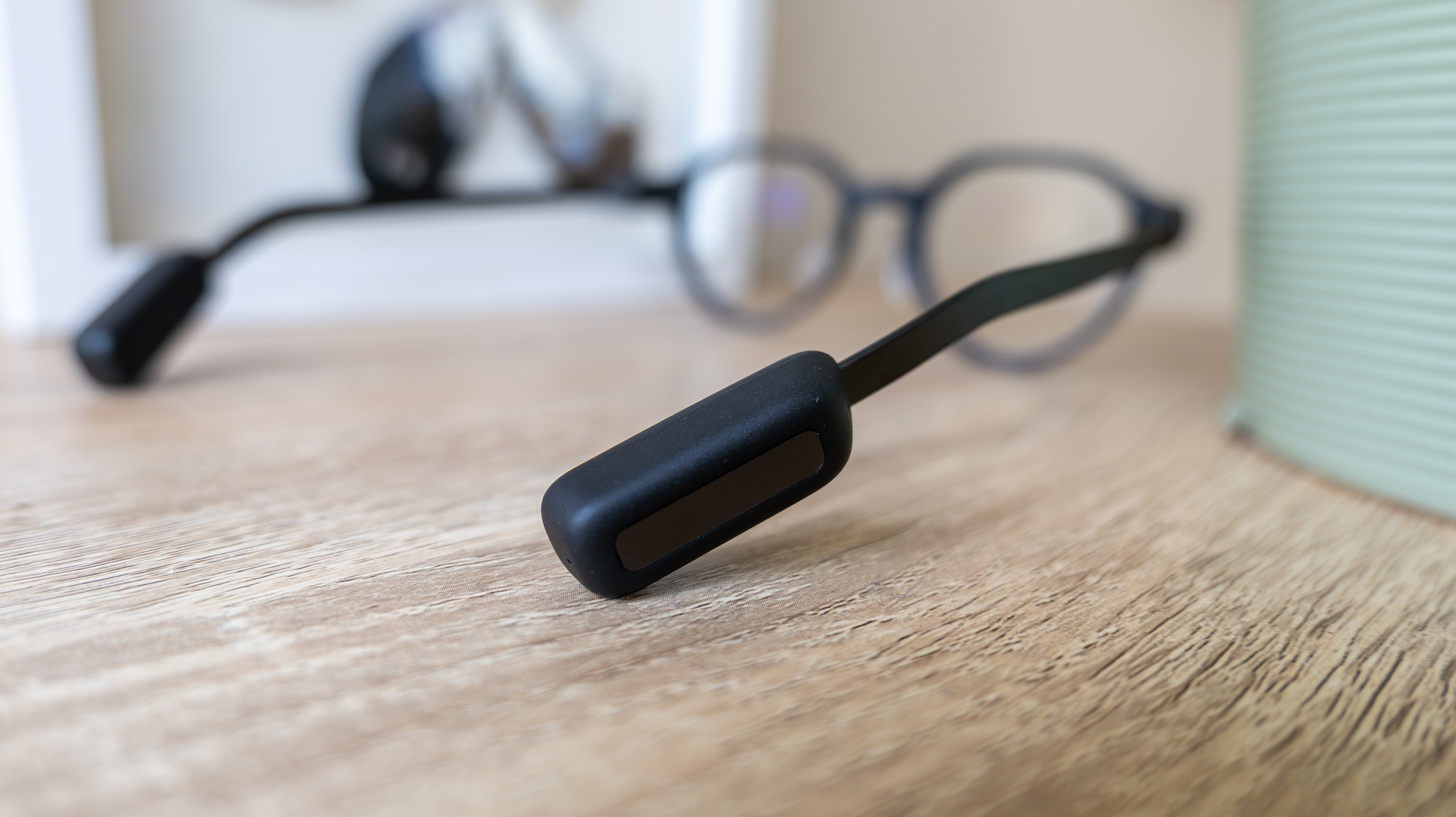
(Image credit: Rik Henderson / Future)
The frame is made from a magnesium alloy, which is solid and strong but also very light, while the arms are made from titanium. Even has also discovered a way of feeding the cable for each battery inside the metal on each arm – the G1 had a rubber coating to hide it.
Speaking of which, the batteries allow for two days of use before charging, but I ended up charging the pair each night by just putting them into the supplied case before sleep.
How the Even G2 Display Smart Glasses work
The Even G2 pair use micro-LED projection and gradient waveguide technology to beam images onto digitally surfaced lenses. This is similar to other smart glasses, including the Meta Ray-Ban Display, but you get two projections in this case – one for each eye.
That forms a large heads-up display when on. It's not full colour – you get a green image – but it is very readable and can be adjusted for brightness.
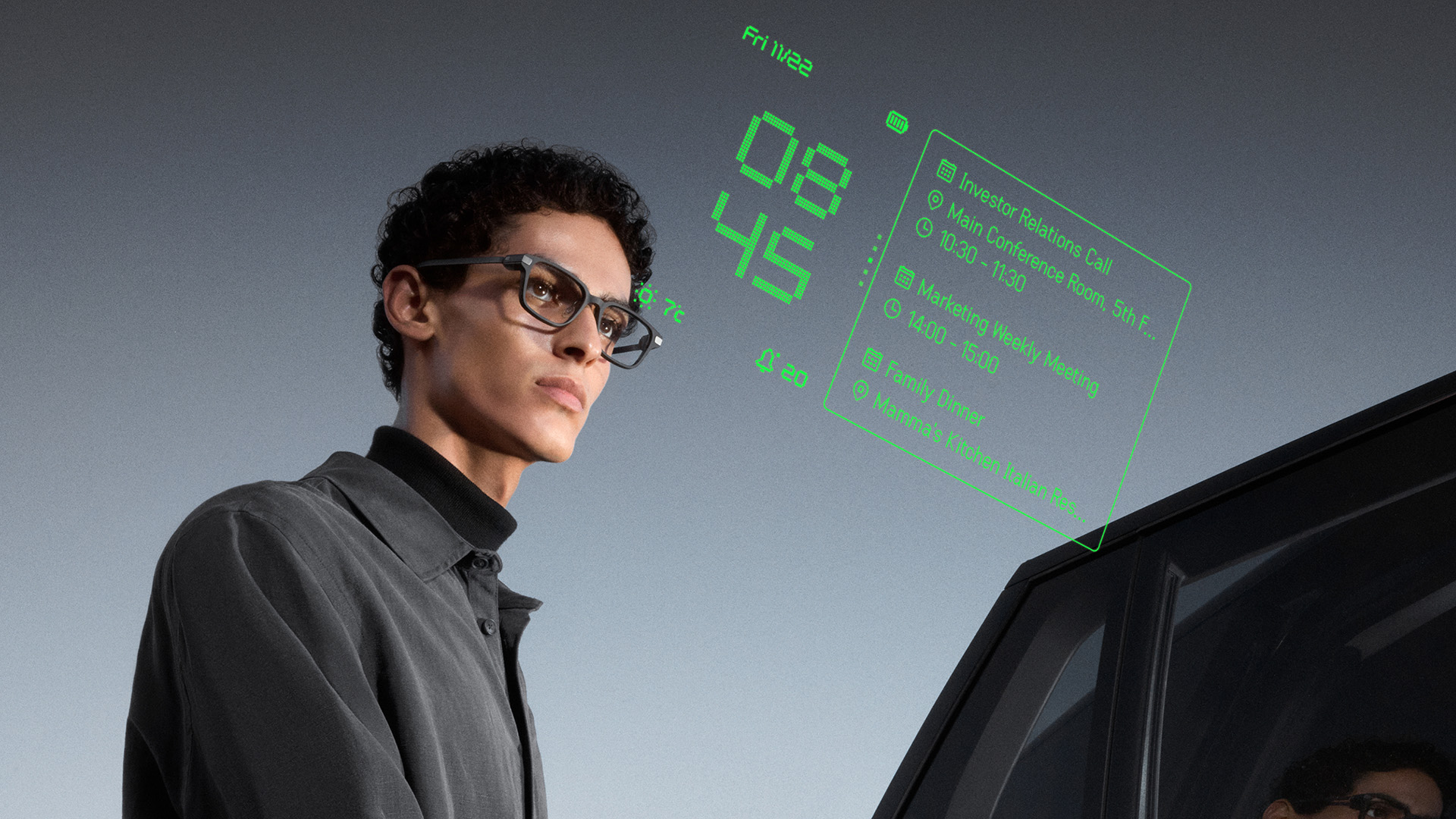
(Image credit: Even Realities)
There are some limitations, of course. The Even G2 glasses do not contain a camera or speakers. There is a microphone in the frame for voice recognition, but this is mainly a phone-powered experience and centred on professional activities.
The dedicated iPhone and Android app controls all the information you'll see on the glasses – which appears front and centre. And its tools are arguably limited when compared to rival systems.
But they are also useful – such as live translation between 29 different languages, and a navigation heads-up that directs you to your destination. You can also assign which notifications you want to pop up – such as phone messages and WhatsApp – and there's a calendar and schedule function to keep abreast of your daily actions.

(Image credit: Rik Henderson / Future)
My favourite option is the teleprompter. Having been a TV presenter in my shady past, I could have done with this, as it will take a script stored on your phone and display the words at a comfortable distance for you to read out. As you talk, the glasses hear where you are in the script and scroll through the lines responsively.
It might not be useful for everyone, but is a great example of where smart glasses can genuinely help with a usually daunting task, rather than just offer gimmicks.
Even has also started to include AI functions in its software, but the application was at a very early beta stage during my initial testing, so I'll come back to that when I review them in full.
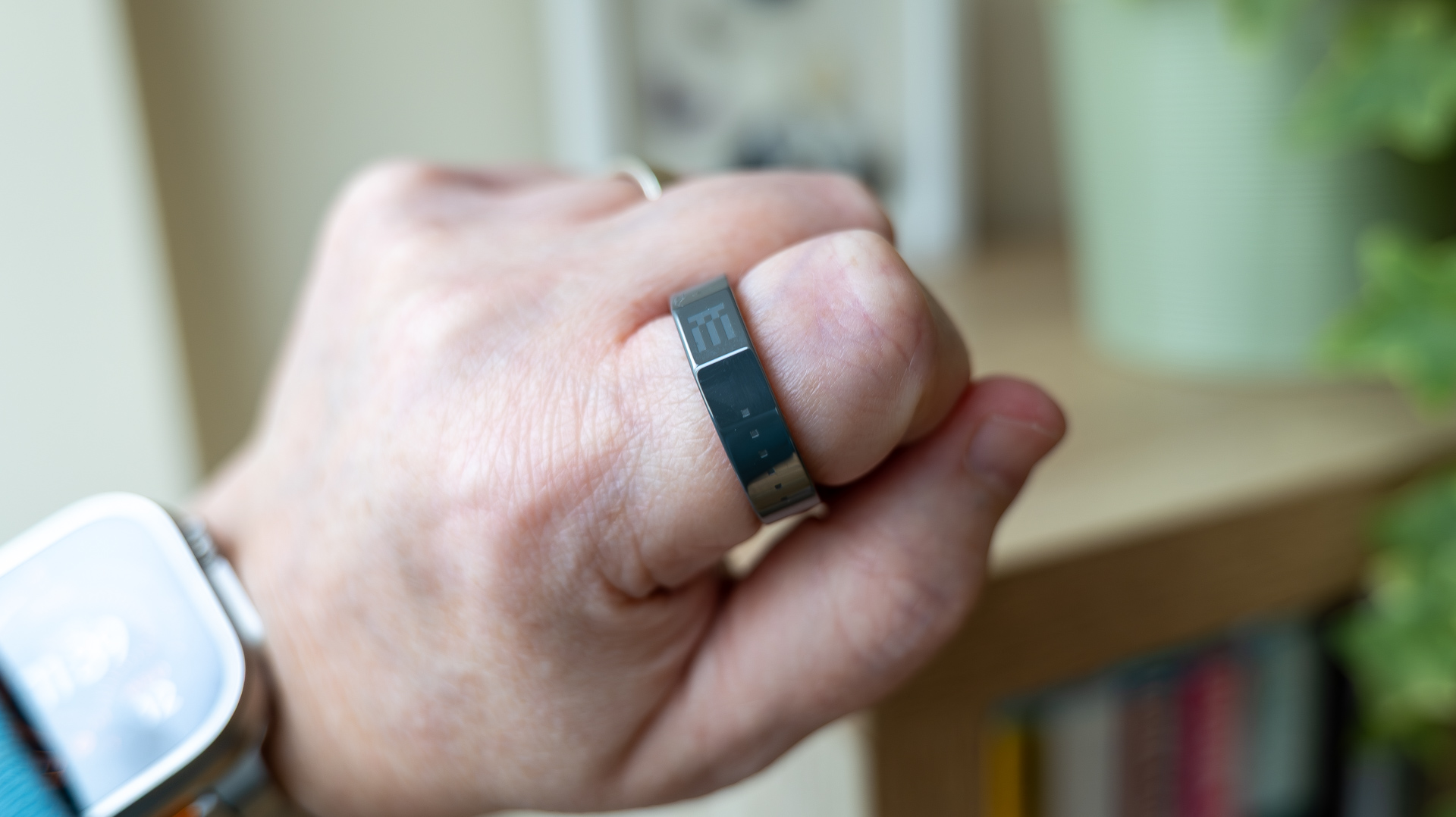
(Image credit: Rik Henderson / Future)
The introduction of the Even R1 Smart Ring
One major new element that goes along with the G2 glasses (or can be used on its own) is the Even R1 Smart Ring. The optional device is a zirconia ceramic coated stainless steel ring that also links with the iPhone and Android app, and will gather fitness and sleep data, much like others on the market.
However, it also comes with a small section on the side that responds to touch. So, when you tap or swipe it, you can scroll through the menus and select functions in the glasses too.
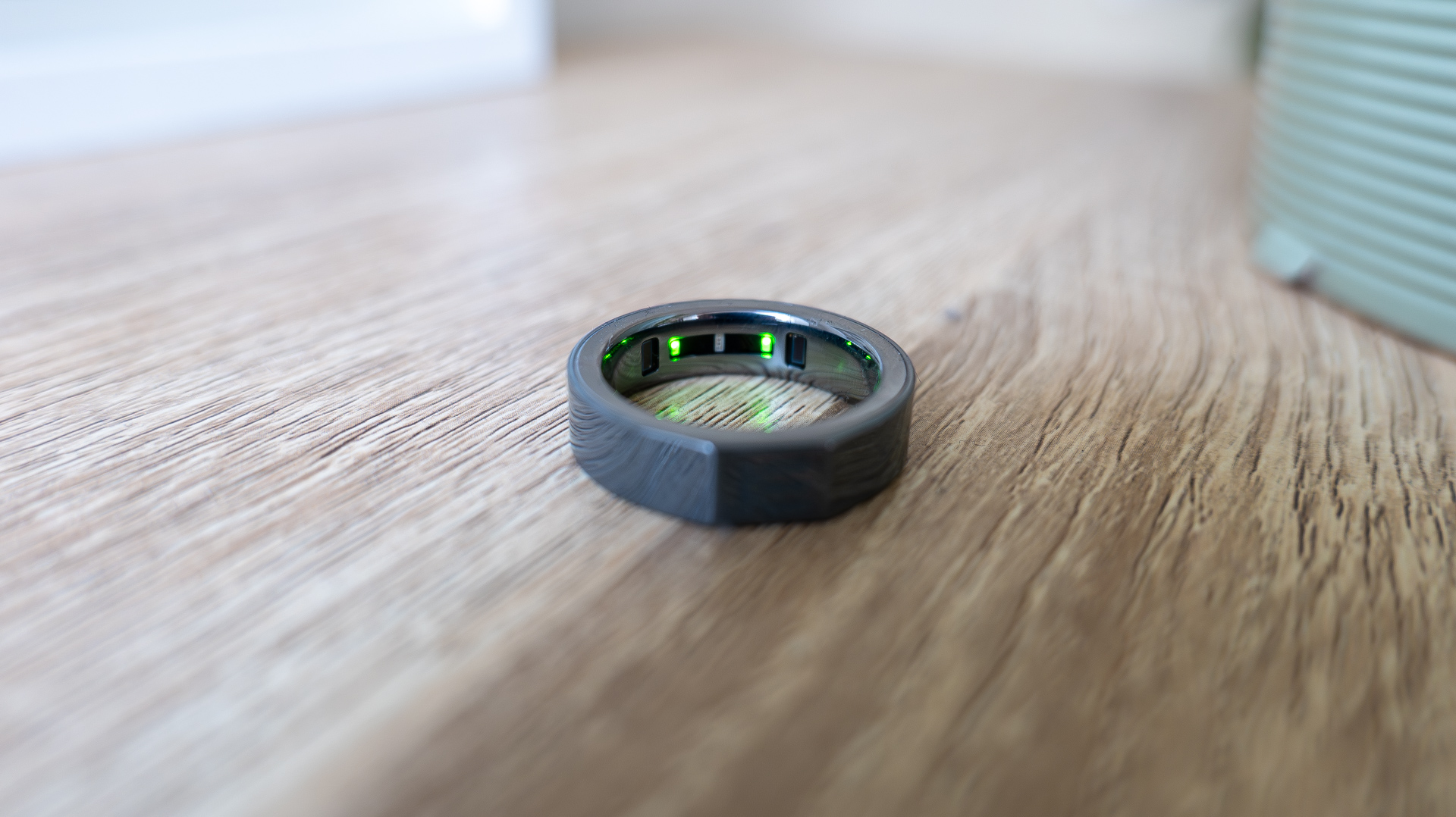
(Image credit: Rik Henderson / Future)
The Meta Ray-Ban Display glasses have a neural band you wear around your wrist, but I found the ring allows for more discrete gesture control – as you just need to use your thumb against your forefinger. And as its a smart ring with its own biometric sensors, it has additional uses.
As with all smart rings, you do need to make sure you order the right size though, as I found the operation fiddly as the one I tested was a little too big – it kept slipping around a tad, so accurately tapping the touch panel each time was literally hit and miss.

(Image credit: Rik Henderson / Future)
My first impressions and, importantly, the price
In all honesty, I need to test the glasses a fair amount longer to get the full experience, but am impressed enough for now. The Even G2 Display Smart Glasses don't quite have the initial wow factor of the Meta Ray-Ban Display, with its full-colour display, camera and built-in speakers, but I could see myself preferring to wear these daily.
The Ray-Bans are chunky and fun, but Even's solution is more comfortable for sure. And while the functionality seems more limited, it distills the experience down to the essentials – especially for professionals.
The company has also revealed that it will soon invite external developers to create additional experiences, apps and tools for its smart glasses – the original G1 too – and so this could build into something far bigger in the future.
For now, these seem a worthwhile consideration for those looking for glasses with smart features, rather than more gimmicky pair that might be worn only occasionally.
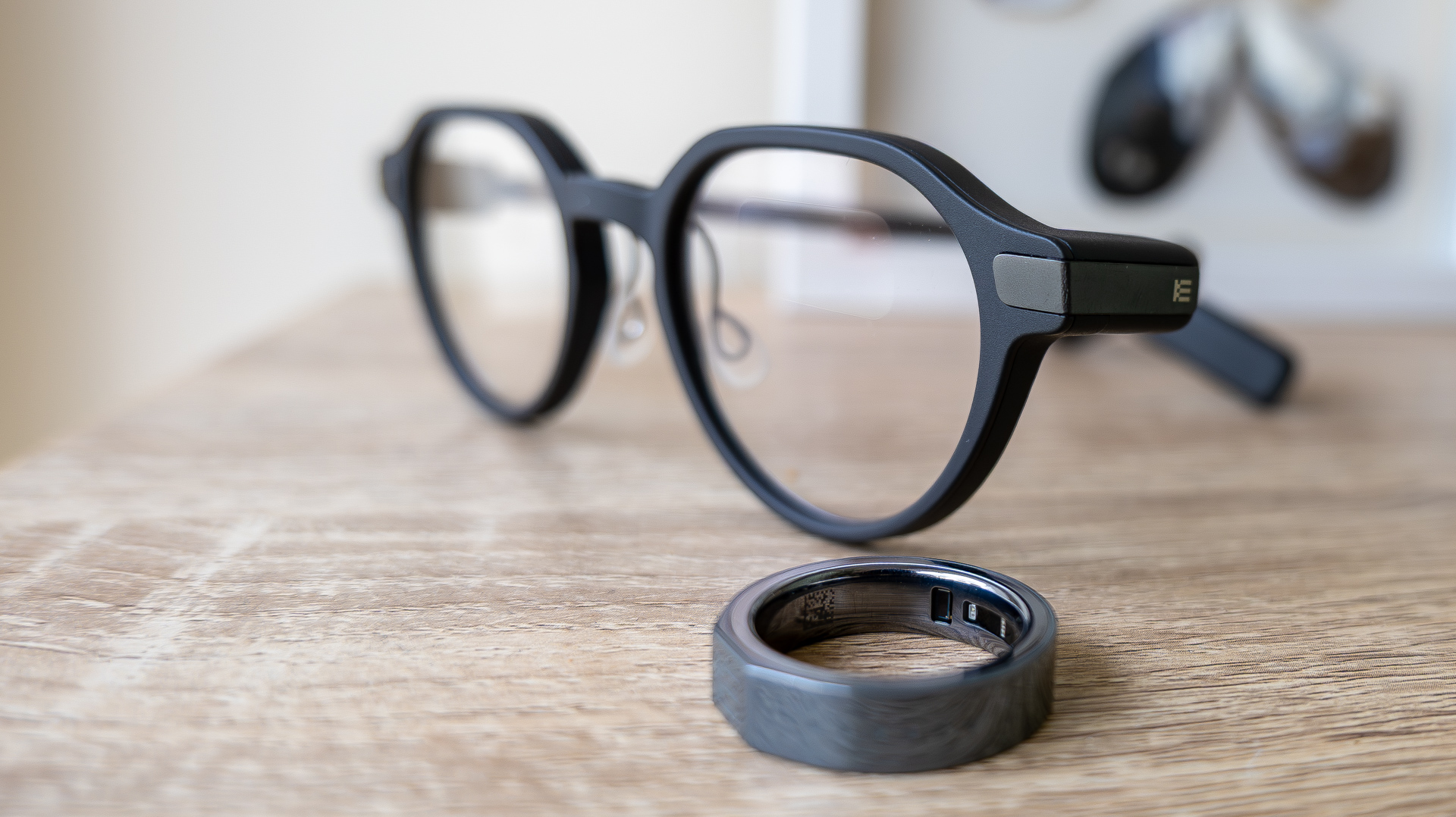
(Image credit: Rik Henderson / Future)
Even Realities prices them from £599 / €699 a pair, with the Even R1 Smart Ring weighing in at an extra £239 / €269. That does make the combined pairing more expensive than Meta and Ray-Ban's equivalent (when it arrives in the UK and Europe next year).
However, as a limited-time launch incentive, you'll get the smart ring for half-price if you order a non-prescriptive pair of G2 smart glasses. And it's also important to note, you don't actually need the ring for the glasses to work with most functionality, and vice versa.
Both the Even G2 Display Smart Glasses and Even R1 Smart Ring are available globally now.

-
 C114 Communication Network
C114 Communication Network -
 Communication Home
Communication Home


